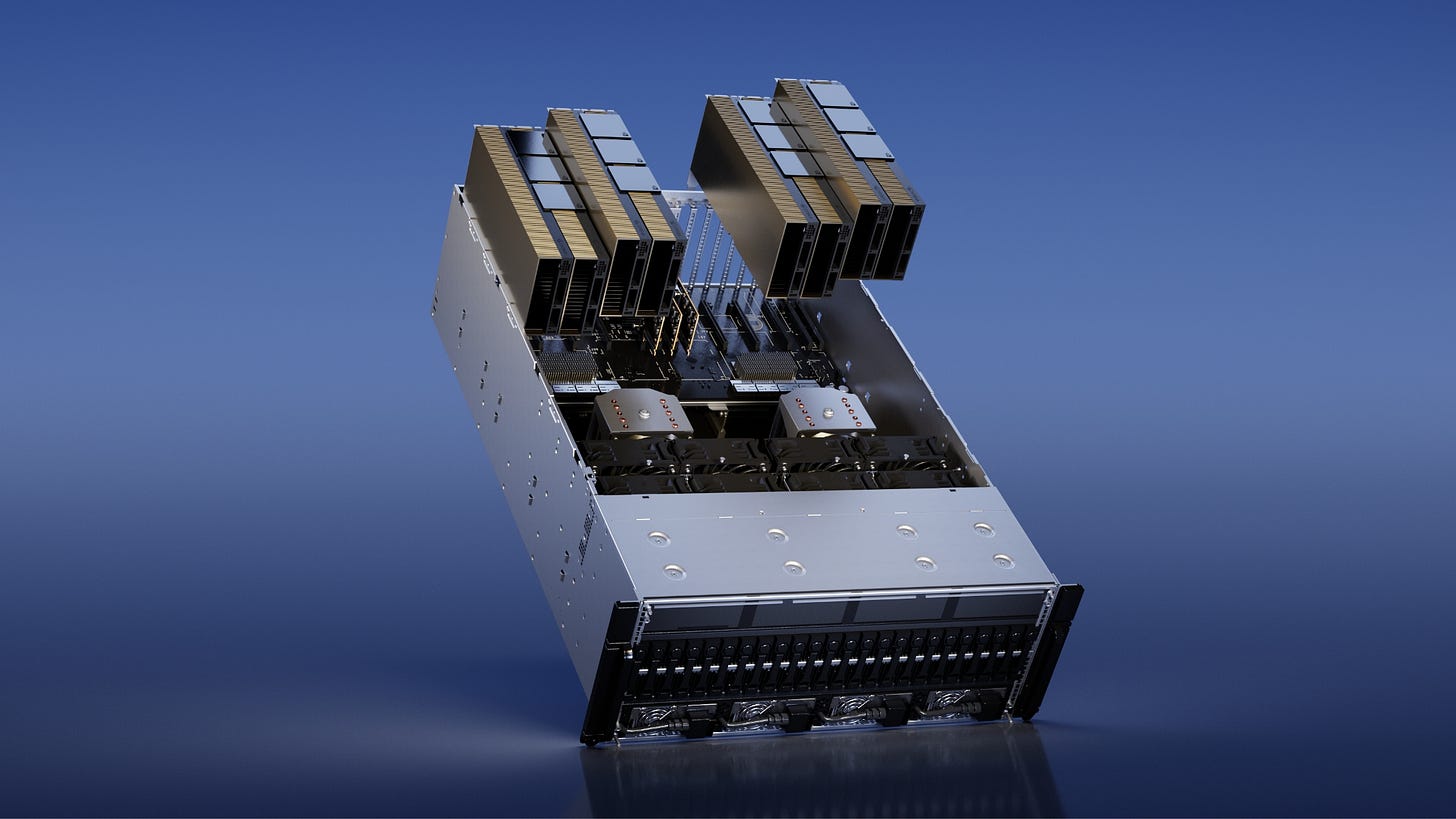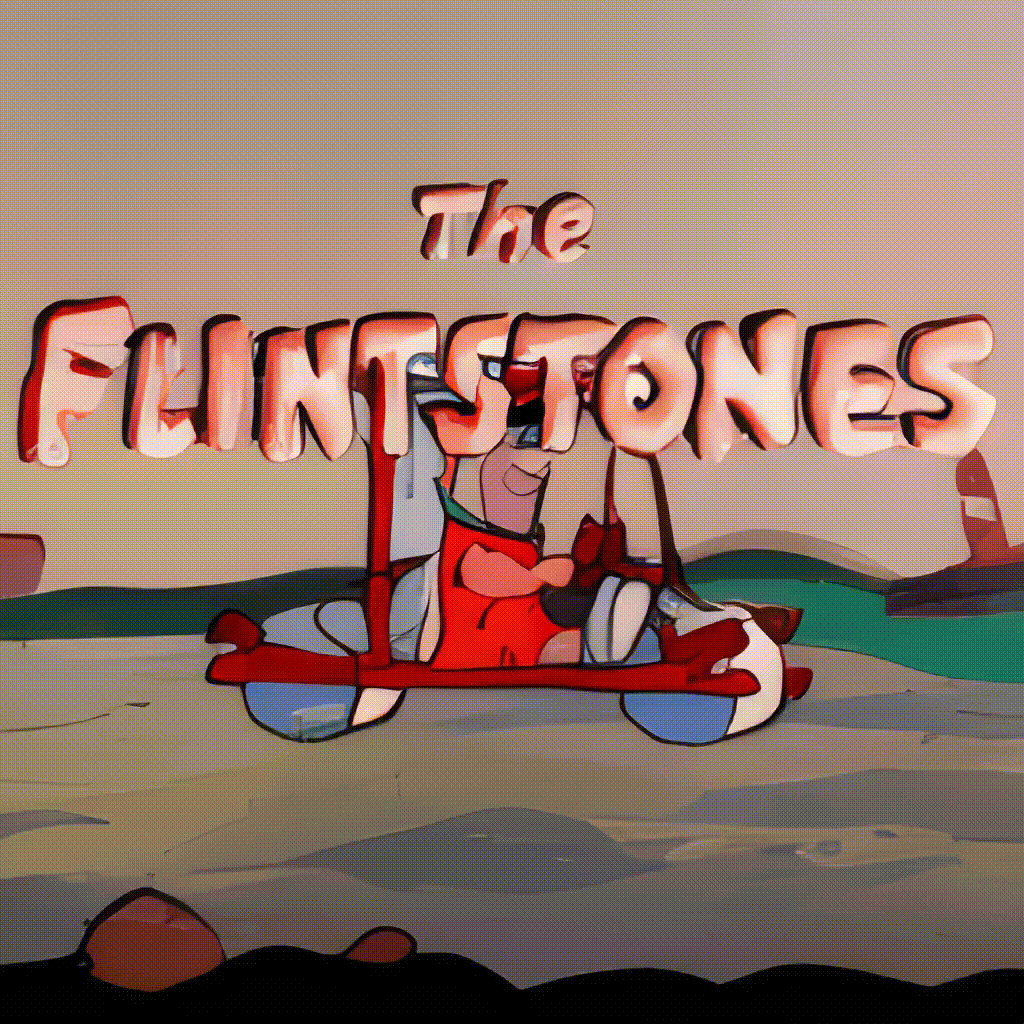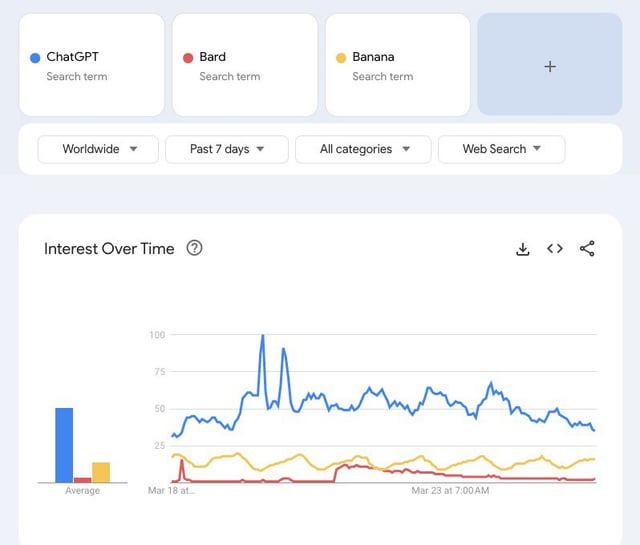The Generative Edge Week 13
ChatGPT plugs into the web, creative giants make their move, Nvidia is selling AI shovels, Google's Bard still needs to practice and our disruptive insights.
Welcome to another week of generative AI. The generative space continues to develop at a rapid pace, so let’s dive right in!
Introducing: ⚡️ Disruptive Insights
Each week, we'll discuss one provocative projection about AI's impact on the future.
Will AI take all of our jobs? From management to engineering, how will AI impact the business world?
Projection: AI will replace lawyers
✅ An AI can efficiently handle document review and legal research, which can increase productivity, decrease cost significantly and minimize human errors in tasks like contract analysis and compliance checks.
✅ Generative AI has the potential to outperform mediocre experts.
❌ The legal system's slow evolution and resistance to change may delay AI's widespread integration into the profession.
❌ Trust in lawyers remains crucial. AI systems will not gain clients' trust for important legal advice over night.
💡AI will not replace lawyers outright, but AI-equipped lawyers will be more competitive as they automate mundane tasks, and optimize workflows. Lawyers who don't embrace AI may lose out in this scenario.
💡 Clients may approach lawyers with more specific questions and narrow tasks and will use AI to verify answers and documents, reducing the principal-agent problem.
➡️ Expect competitive pressure on the market for lawyer services (and thus the job market) eventually as AI takes over some work that could formerly only be done by lawyers. To stay relevant,
ensure a high level of customer trust,
share efficiencies (cost and speed) gained via the use of AI with customers
and set up client acquisition and case handling for higher throughput (to make up lower case value through higher case volume).
Plugging into language models
Generative language models are incredible and powerful but struggle with factuality when used in isolation. As we’ve mentioned last week, their true power comes to light when they’re connected to other tools, databases, search etc.
ChatGPT Plugins
OpenAI announces ChatGPT plugins, an integrated system that allows ChatGPT to integrate with any external service
Let it search the web for you, do complex math and perform actions on third party websites. The implementation is simple, the potential gigantic!
Feeding external knowledge into ChatGPT drastically improves its factuality and potentially opens an entirely new market, think iOS appstore - but for AI
Fast moving open-source project Langchain has immediately implemented support for these plugins
Plugins are currently in alpha, and you need to sign up for a waitlist if you want to play with this
Shovels for the AI goldrush
The world of generative AI is running on graphics cards (GPUs). Born from the gaming industry they have evolved into an absolute requirement for all AI. These parallel processing monsters are essential to perform the computations needed to run these massively complex neural networks.
During the goldrush, selling shovels was a great way of riding the wave. Today’s shovels? GPUs. And just about every GPU that matters in this space comes from one single company: Nvidia.
Nvidia Foundation
Seemingly no longer content to just provide the hardware, Nvidia tries to move up the value chain with a new offering:
Nvidia launches AI Foundations, a cloud service dedicated to generative AI
You can use Nvidia’s services to have them create bespoke models for you, and operate them at scale
Allegedly they provides state-of-the-art foundation models for text language, visual media, and the language of biology.
New dedicated AI chips
These chips are very powerful, have a lot(!) of memory and are specifically designed to operate the giant generative models in a highly parallel fashion
As the demand for generative AI rapidly increases, this type of hardware will help to keep up with demand
Neither AMD nor Intel (Nvidia’s competitors) have anything comparable to show so far and it’s fair to say that Nvidia is dominating this market for now
Generating … Flintstones?
Last week we talked about generative video, and how it’s in its infancy, but will soon rapidly improve. Sure enough, this week saw the release of another system that expands on the capabilities we’ve seen last week.
NUWA-XL
Microsoft Researchers publish NUWA-XL, a multimodal generative video AI model
Where other video models are trained on and can only create short segments, NUWA-XL can create long form videos and follow a script
Where previous approaches would only generate short videos, this system can create long videos from scripts.
The output is still pretty rough and janky, but as we don’t tire of saying: this will improve very quickly!
➡️ At the current speed, expect personalized, generated video and gaming entertainment in the next years!
Creative giants are moving into generative AI
Rapid developments aren’t only happening in the open-source world of Stable Diffusion and in research labs like Midjourney. The giant players in the market aren’t sleeping and are pushing heavily into this space.
Adobe Firefly
It’s a colourful bouquet of tools, from simple image generation to fully integrated edit workflows (in 2D and 3D!)
Adobe makes it clear that their image generators are trained on licensed material only, which should help with copyright concerns that sometimes plague the other models
Currently in beta and available via waitlist (boo!)
We’ve shown you a possible generative Photoshop flow a couple of weeks ago, which can be considered outdated now, as Adobe is adding first class AI support
Bard is… ok?
Google opened Bard for limited beta, their own take on the large language model
Despite them having an incredible AI research team (the foundation of the current wave of AI, the transformer came out of Google!) they were slow to productize their AI expertise.
Turns out, Google is plagued by inventor’s dilemma
Expectations were high.. and, well, it’s merely alright, with plenty of room for improvement if they want go up against to the competition (i.e. OpenAI)
Public interest is already waning and if generative AI is the future, Google better step it up
And that’s it for this week!
Find all of our updates on our Substack at thegenerativeedge.substack.com, get in touch via our office hours if you want to talk professionally about Generative AI and visit our website at contiamo.com.
Have a wonderful week everyone!
Daniel
Generative AI engineer at Contiamo















